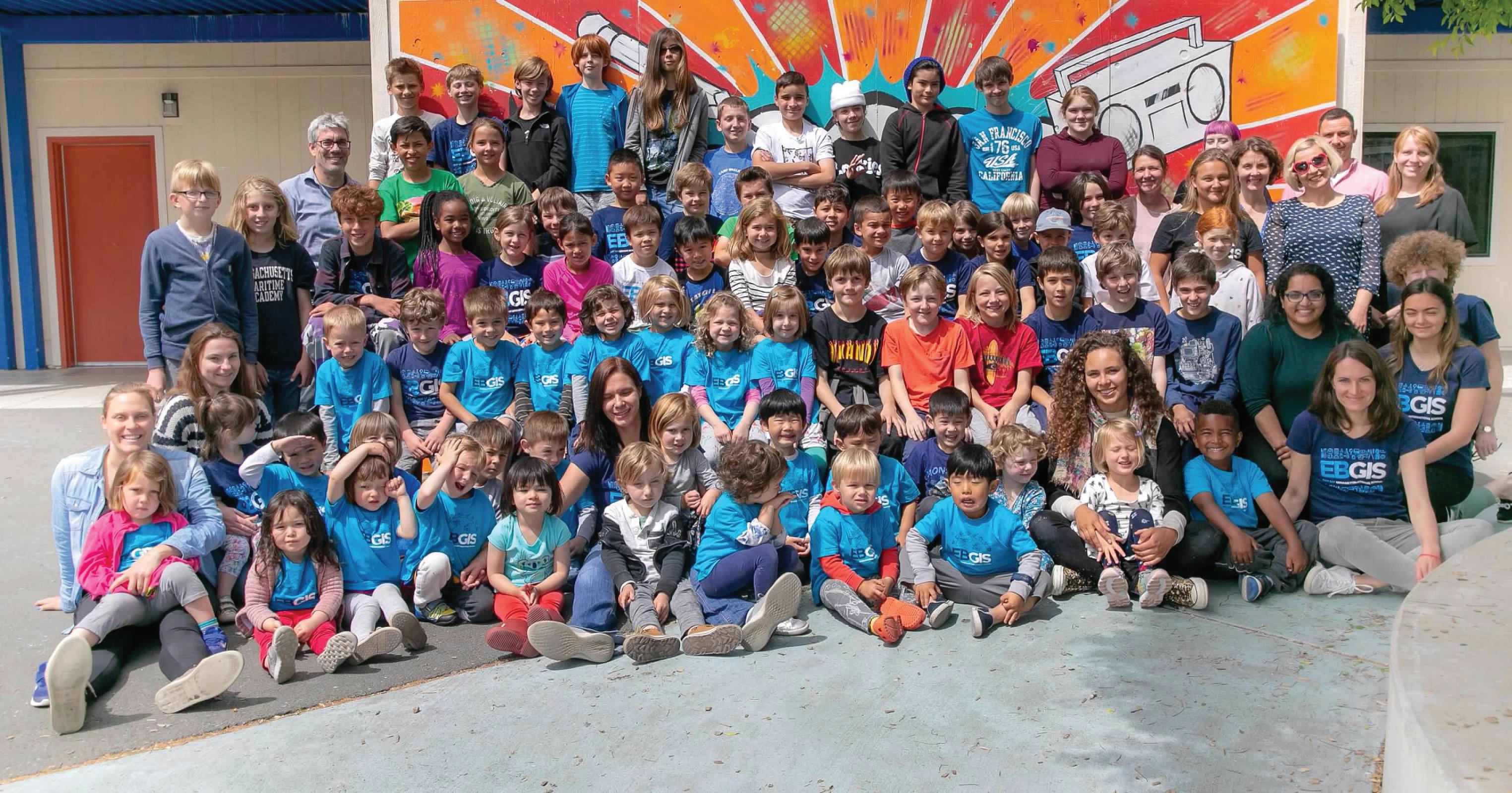
9 minute read
Good to Know
Get Crafty This Summer
With most summer activities being home based this summer, kids can still find creative ways to spend their time by making a unique gifts and projects using any of the fun tutorials from CraftProjectIdeas.com, a site that inspires creativity.
Kids can make 3D card or custom picture frames or give a special message to a friend that they can’t spend time with. Parents can search for projects based on their children’s age, material and season using the “Project Finder” in the top right corner of the site!
CraftProjectIdeas.com

Images from CraftProjectIdeas.com



Keep Those (Non Covid-19) Vaccinations Coming!
In the US, federal health officials reported in May that routine vaccinations of children dropped dramatically in March and April as a result of the coronavirus response. This could lead to a measles outbreak or, even the return to Polio in the US. Pediatricians recommend that children still receive their inoculations, even amid the pandemic.
Window Fall Prevention
Barbara DiGirolamo Injury Prevention Coordinator

Children are very curious and very agile, if windows are open any more than for inches; there is a good chance they can push their way out.
As the temperature rises and maximum of four inches. Screens sunshine finally hits the are meant to keep the bugs out, not Bay Area, opening up your your children in. Children are very windows to clear your house of curious and very agile, if windows winter germs is always one of the are open any more than for inches; first things we do. Albeit a great there is a good chance they can idea, if you have children under the push their way out. There should be age of six in your home, you should no furniture near windows, espetake the below precautions before cially if they are open. Jumpers and letting in that spring air. climbers may slip and fall into or
Windows should be open from out of the window. the top, down. If you must open If you child does fall out of the them from the bottom, be sure window, never move them. Call 911 to have window locks on them, immediately in case of any spinal so that they may only be open a cord injury. With these tips, we hope you have a safe and fun filled July!

Be Counted in the California Census
IT’S NOT TOO LATE TO BE
COUNTED for the 2020 Census! Being counted will help decide how billions of dollars will reach California families. Your answers will help determine funding for dozens of programs that provide essential resources to Californians. Census data determines funding allocations for schools, child care programs, road maintenance projects and social assistance programs. If you haven’t already, now is the time to fill out your household census questionnaire. Children should be included on your 2020 Census form— and not just children related to you, but any kids that live at your address. Babies count, too! All babies count as long as they were born on or before April 1, 2020, make sure the person completing the Census for your address includes them on the form. In California, all kids count

I-Scream, U-Scream In 1984 President Ronald Reagan crowned July as National
Ice Cream Month. If you’re trying to keep your snacks healthy and low-cal, try this easy DIY frozen banana treat. Simply slice a few bananas and place them in a plastic baggie, then toss it in the freezer. Once frozen, pour the slices into a food processor or blender, whiz until creamy and voilà – you’ve got a healthy and delicious take on ice cream without the dairy.

By Courtney Dickinson
IN THIS ERA OF REMOTE SCHOOLING, there are new tech platform norms and social coaching advice that we, as parents and educators, need to expressly spell out for our children. Framing and coaching how students can engage productively will support their success in on-line learning and social collaboration in a video classroom world. Students need explicit guidance to know how to bridge “in-person” social norms into this virtual world.
Being in a virtual classroom is a social experience and requires conscientious self-awareness and selfmanagement. As is the case when students are together at school, there are many behaviors which can be inappropriate and risky; comments and actions can be misconstrued and backfire. Make it clear to kids that when they are not in person, there is an even higher risk that they will be misinterpreted by others.
The following are norms that teachers can implement in online classes:
1LOCATION MATTERS! Find a spot in your home where lighting and sound work well, where you can be physically comfortable, and distractions are limited.
2BE DRESSED FOR CLASS. You wouldn’t wear pajamas to school on a regular day, so don’t wear them now.
3LISTEN AND AVOID INTERRUPTING VERBALLY or through chat, just as if you were sitting in the classroom. You might need to mentally “bookmark” your idea even longer than you would during an in-person discussion. Write it down so you don’t forget it, and then insert it later when it fits.
4DON’T YELL BY USING CAPITAL LETTERS, bold font, or excessive punctuations. You won’t get the result you want. You will just make people feel annoyed at you, and then they may YELL back – which is unproductive – or not listen to you at all.
5ATTEMPT TO FIND YOUR OWN ANSWER. Take the time to read and reread directions and information in emails and other written messages. See if you can figure it out before asking for the answer. Believe in yourself!
6KEEP YOUR WRITING IN THE “CHAT” FUNCTION FORMAL.
Textspeak can b gr8 4 ur friends, but in class your written communication should reflect proper writing style.
7ALWAYS USE A RESPECTFUL TONE AND DO NOT SAY UNKIND
THINGS. While it feels easier to say hurtful or disrespectful things when you are not standing face-to-face with someone, remember that your classmates and teachers are real people who are affected by the words you say and write. 8 THINK BEFORE YOU TYPE. You can even say the words out loud before you send a response. Written communication is not the same as an in-person conversation because important cues like tone, body language, and immediate listener feedback are missing. Sarcasm can – and will – backfire.
9BE FORGIVING! This is different for everyone, mistakes will happen, and plans may not come together as intended. Pause to take a breath and be kind. You will be back in person with them, and you want to keep these friendships!
continued next page >>>
SCHOOLS

Limited Space Still Available

Contact us to schedule your virtual tour today!
St. Paul’s is a K-8 independent school located steps from Lake Merritt. We welcome families of all faiths or none. A transformative education built on fearless learning, service, and diversity.

10 DON’T ABUSE THE CHAT BOX and avoid using or changing your virtual backgrounds. If used at all, the chat box should improve the conversation, not distract from it. Changing the virtual background distracts others in ways that may feel fun to you but actually are just annoying to others. If what you really want is to connect with friends and laugh together, set up a video chat time to socialize at a non-class time! For parents serving as the school-day facilitators and monitors of your child’s focus, accountability, and morale, there are home-based norms which you might consider as well: • Keep habits and norms on a schedule at home with consistent wake up, meal and bed times. • Expect that everyone in the house gets dressed every day. • Have family meals whenever possible. Even historically snarky teenagers may actually really be craving conversation, even with uncool parents! • Expect that everyone goes outside every day and, ideally, exercises every day. • Limit the amount of discussion and newscasts about COVID to which your kids are exposed. They have even less reserve to process this than we do, as adults. • Say “no” and shut off TV and video games with clear, firm, consistent limits when you see that too much screen time is eroding your child’s mood, undermining their willingness to go outside, or distracting them from school work.
That said, proactively help your child set up video chat meet-ups with their friends outside of school day hours. This additional “screen time” is valuable and worth it.
It is difficult to support your child to stay engaged and to follow through and also to know when to “let them off


the hook” and opt out of school for emotional wellbeing. Emotional well-being and feeling connected with other people is far more important than any academic learning or growth right now. Without emotional health, no academic learning or growth can occur, anyways. Prioritize your kids’ time this way. It’s OK to say “yes” to video chatting with friends as more important than the on-line math tutorial program.
Reach out to your child’s teachers and school counselor to share your observations and kids’ needs. The ways teachers and counselors monitor kids’ wellbeing and engagement are no longer available to them, and they still worry and care. They may be able to set up additional supports if they know what you are seeing at home with your child.
Assess if a child’s behavior is truly problematic or if they are doing something which may be a coping mechanism. Try to understand what is at the core of your child’s choices and behaviors when you intervene. All the norms that make things work during in-person schooling still apply in this remote schooling world. The benefits of a clear and consistent daily schedule and rhythm top the list of things parents can provide their kids. For students, engaging with heightened awareness about how they impact others will be best supported by adults who convey the translation of in-person social conventions and kindnesses into the video chat world. Making things clear to them supports kids to feel safe and to know what to do to be successful. ²
Courtney Dickinson is a Director of a K-12 School.


Educating Global Citizens
The East Bay German International School (EBGIS) is a dual-language immersion school offering Preschool, Elementary and Middle School programs. Our integrated curriculum combines bilingual German and English instruction with project-based learning and a cross-cultural experience. We offer exceptional academics, a diverse international perspective, and a vibrant community of students, parents and teachers.
No prior knowledge of German is needed to join our Preschool and Kindergarten programs. Students need not be fluent in German to join our Elementary and Middle Schools. Talk to us about individualized language support.

